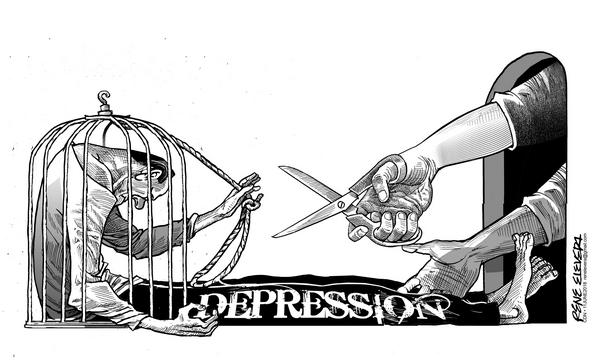
The tragic deaths by suicide of designer Kate Spade and gourmand Anthony Bourdain have spurred reflection among observers of popular culture the world over.
Resurgent is the message that wealth, fame, and success do not guarantee joy, as is the thought that followers of celebrities ought to feel for them something apart from envy.
Indeed, the seemingly strongest of persons may conceal a desperate slide towards despondency and should not be simply left alone in the assumption that all goes well with them.
Family members and friends would do well to check on one another — preferably face to face rather than virtually — although they may look fine at first blush.
Meanwhile, those who feel down need to open themselves to environments where they will constantly remember that there is always so much more to life than immediate problems, that such concerns, if not passing, are not beyond amelioration.
Gratefulness as is now expressed in retrospection by people positively touched by those who took their own lives — Bourdain inspired Filipino chefs by putting a global spotlight on our dishes and declaring Cebu’s lechon the world’s best roasted pig — should energize efforts to institutionalize effective mental healthcare for those in need.
We echo the hope of Sen. Juan Edgardo Angara for President Rodrigo Duterte to sign into law soonest the Mental Health Act that Congress transmitted to Malacañang on May 21.
That the Philippines now has the highest rate of suicides in Southeast Asia tells us that our communities — families, schools, churches, workplaces — are already wanting as spaces for minds to healthfully thrive.
It is high time for these social structures to be introduced to scientific ways of being supportive to those who struggle with depression and other mental health issues.
A law protecting and promoting mental health will be a crucial step towards upgrading our people’s unquestionable gifts of compassion and care.
It will also put the State squarely behind every Filipino’s quest for subjective wellbeing.